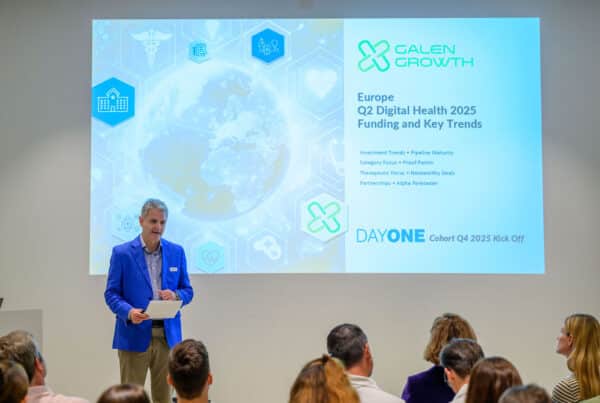Risklick is a Swiss-based digital health company that specializes in AI-driven solutions for clinical trial protocol development. Risklick’s flagship product, Protocol AI, is the first AI-based platform designed to streamline and optimize the creation of clinical trial protocols and related study documents. The solution enables companies to shorten protocol development time by 50% while enabling compliant and data-driven trial design.
Traditionally, clinical protocols take up to 12 months to write, involve 5-20 contributors, and suffer from poor quality due to error-prone, manual processes. Protocol AI modernizes this by providing an intelligent, collaborative platform that enhances quality and efficiency.
Dr. Poorya Amini, founder and CEO of Risklick, has a background as a veterinarian and holds a PhD in pharmacology. After completing his studies, he worked as a clinical trial project manager at a CRO, where he gained firsthand experience with the challenges of trial management. Seeing the industry’s reliance on outdated tools and recognising the potential of AI to address these challenges, he was inspired to create Protocol AI and lead efforts to drive innovation in clinical trial protocol development.

DayOne spoke with Dr. Poorya Amini, CEO of Risklick and DayOne Accelerator Alumnus 2023/24, about the role of AI in healthcare, the challenges of a startup and his advice for navigating them. This is what he shared.
Role of AI in healthcare
There’s a lot of hype around AI, which often leads to unrealistic expectations. While AI is a powerful tool – especially in healthcare – practical solutions that demonstrate clear ROI are still rare. In pharma, time to market is critical due to patent pressures and intense competition, so AI’s ability to accelerate processes is vital. However, clinical trial design is complex and requires human expertise, experience, and intuition beyond data alone.
That’s why we view AI as a supportive tool that empowers humans to work faster, smarter, and more efficiently – not as a replacement. In other words, we see AI as a supportive “co-pilot” to enhance human expertise, reduce errors, and accelerate research, while ensuring that final decisions always remain in human hands.
Challenges and advice
Data security and privacy requirements are clear and well-defined, but the challenge lies in determining the best approach and process for this new solution. Since it’s the first of its kind, no one fully knows the right way. We work closely with clients through trial and error – collaborating, learning from failures, and iterating until we find the most effective solution. While we aim to lead and maintain our position, we are building those best practices and paving the way for the market. In other words, we are building both the market and the solution.
The challenge is that clinical trials are becoming increasingly complex, which slows everything down. While technology and processes are improving efficiency, trial designs are getting more intricate, especially in fields like oncology where multiple therapies and comparison arms are involved. So, even as we make progress, faster trials may remain difficult due to this rising complexity.
The biggest challenge for digital and AI startups in pharma is proving value and ROI. Since these technologies and approaches are new, there’s little concrete evidence – only assumptions and projections – leading to market hesitation. Pharma companies are reluctant to take risks due to past failures and prefer to wait for proven examples before adopting change. My advice to startups is to start with small use cases in collaboration with clients. This helps demonstrate value, which can then lead to larger opportunities. Our first pilot was with a mid-sized pharmaceutical company, where we demonstrated value and created a strong use case. We then used that success to approach others for additional pilots.
Lessons learned
The biggest lesson I’ve learned is to stay committed to your vision – realistically and persistently – even in the face of scepticism. Early on, we received significant pushback, including from investors who believed large corporations developing similar tools would make our solution irrelevant. We were told major players were building their own systems and would never become our clients. Still, we stayed focused. A few years later, some of those same companies chose to use our platform and abandon their internal solutions. It proved that deep expertise and execution can outperform size and brand.
Innovation can be challenging in large organisations. With the pace of technological change, it’s easy for solutions to become outdated before they’re even deployed. In contrast, startups have the agility to adapt quickly. While larger companies may take a year to approve and implement a decision, we can assess, decide, and pivot in a day – making speed and adaptability our greatest advantages. The most effective approach is for startups to collaborate with large firms – who bring business expertise, resources, and industry networks – to mature and adopt innovations successfully.
Looking forward
I believe that clinical research will undergo a major transformation in the next three to five years. Emerging technologies – such as in silico trials, digital twins, and advanced AI – combined with improved processes, will significantly reshape how trials are conducted. Today, the success rate of clinical trials is around 10%, but with these innovations, I’m confident we’ll see a shift toward far more efficient and effective trials.


